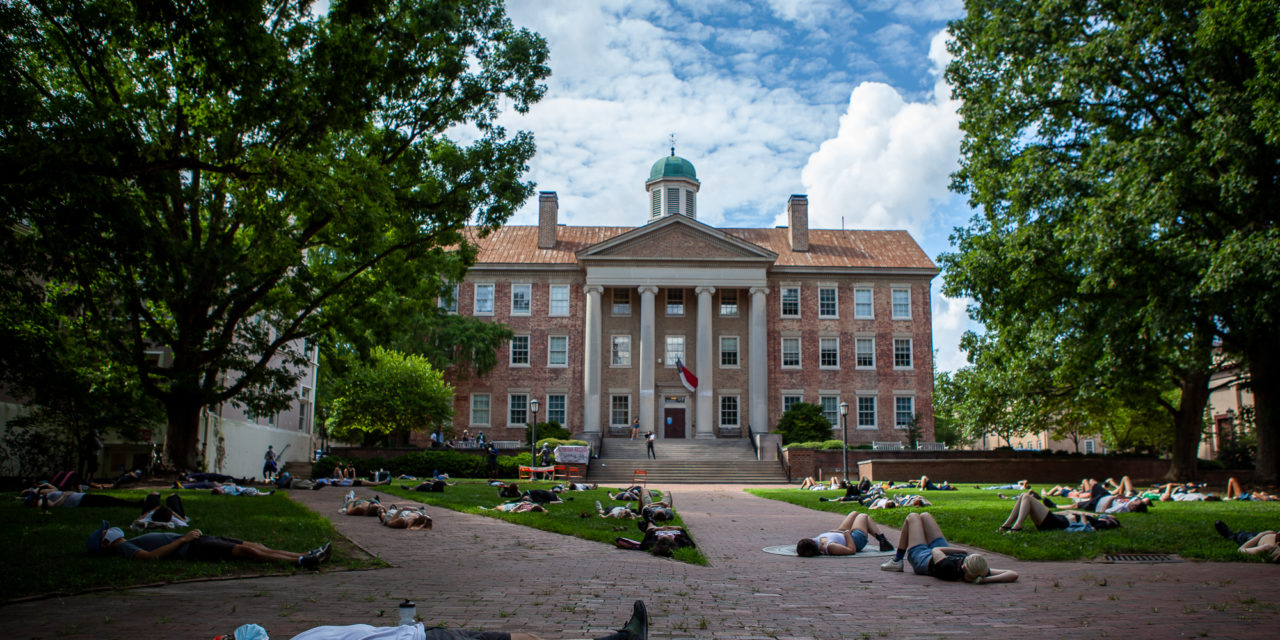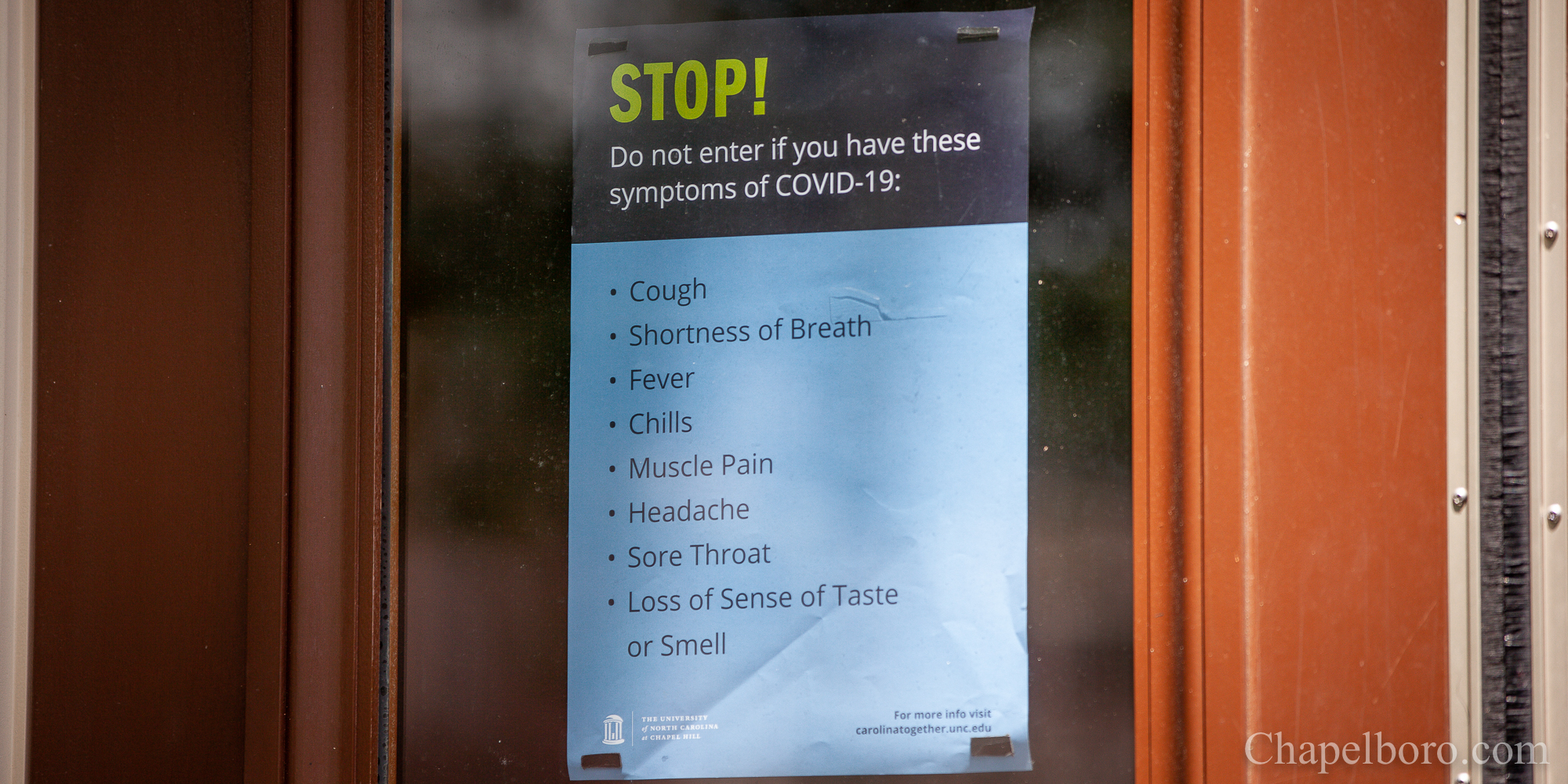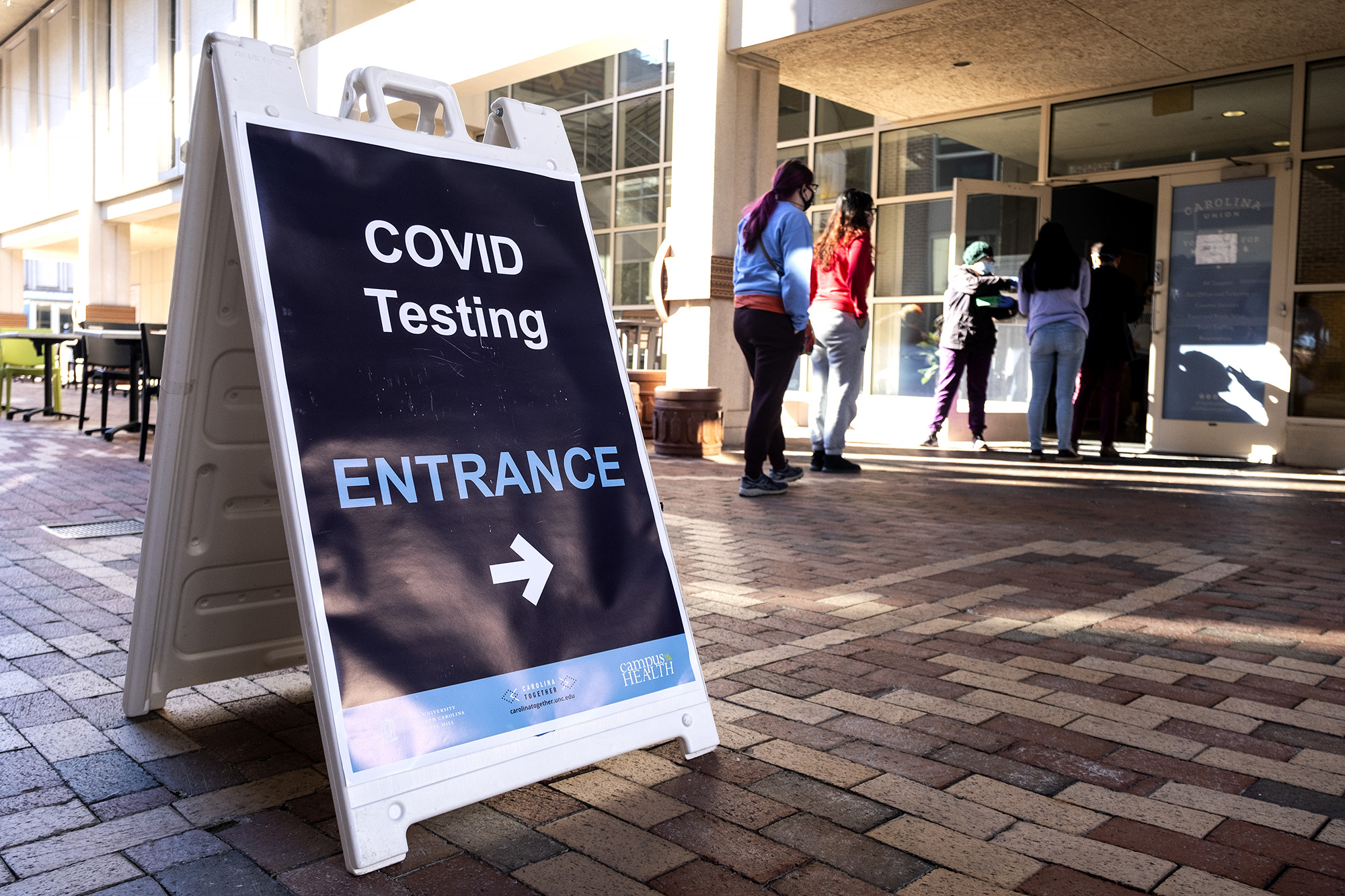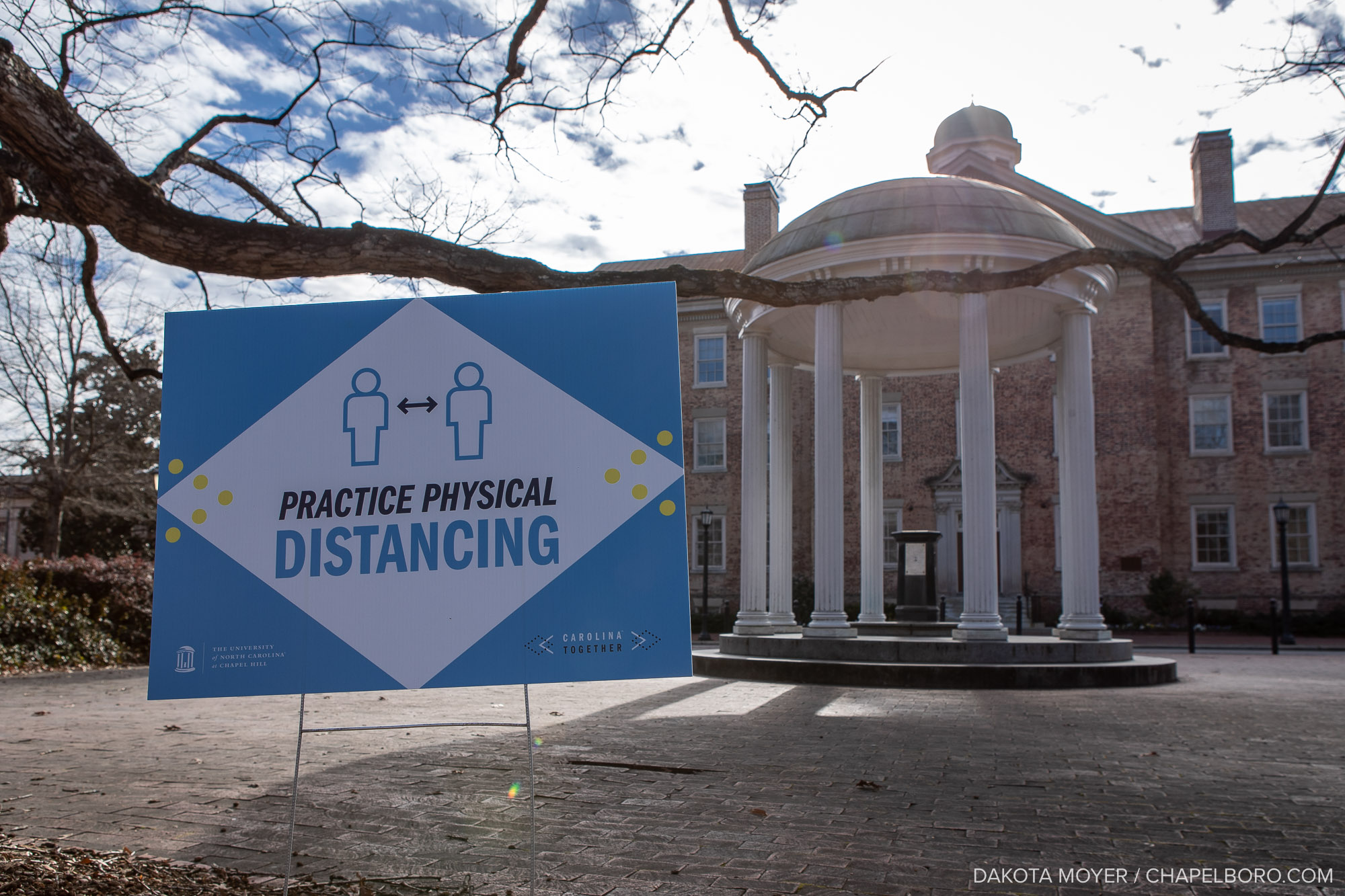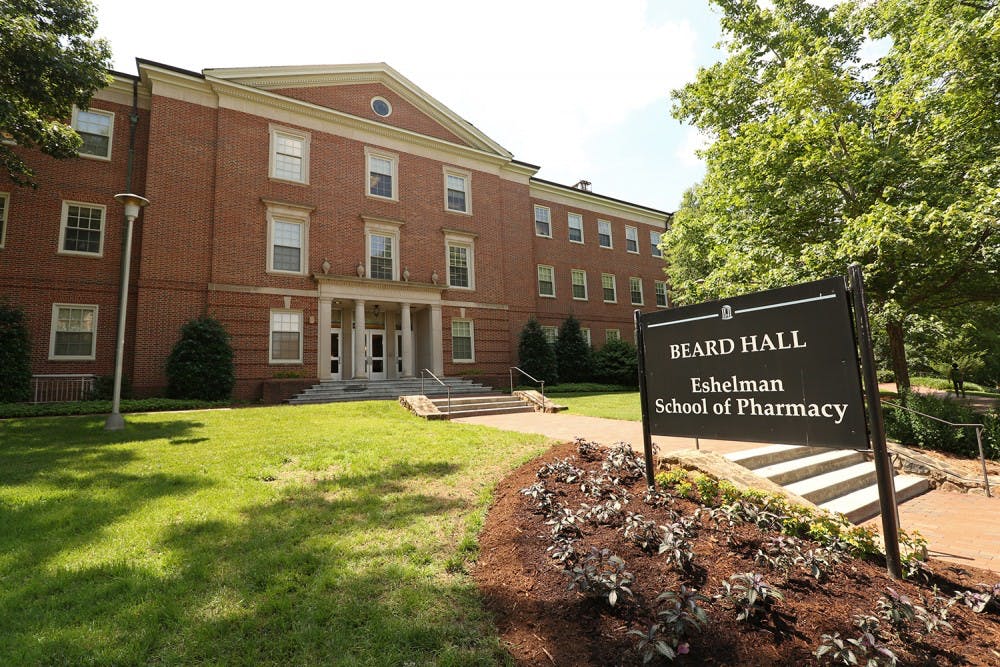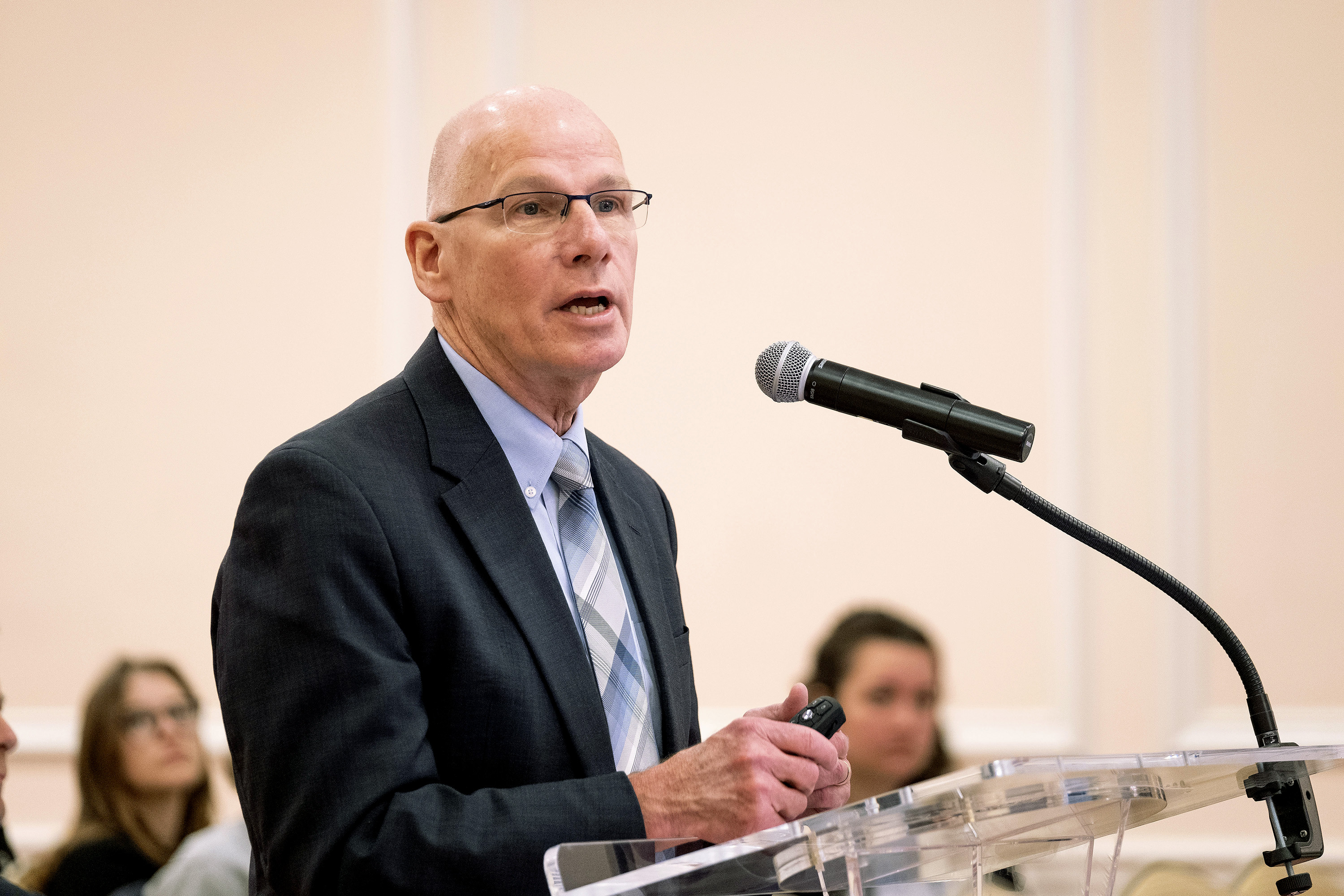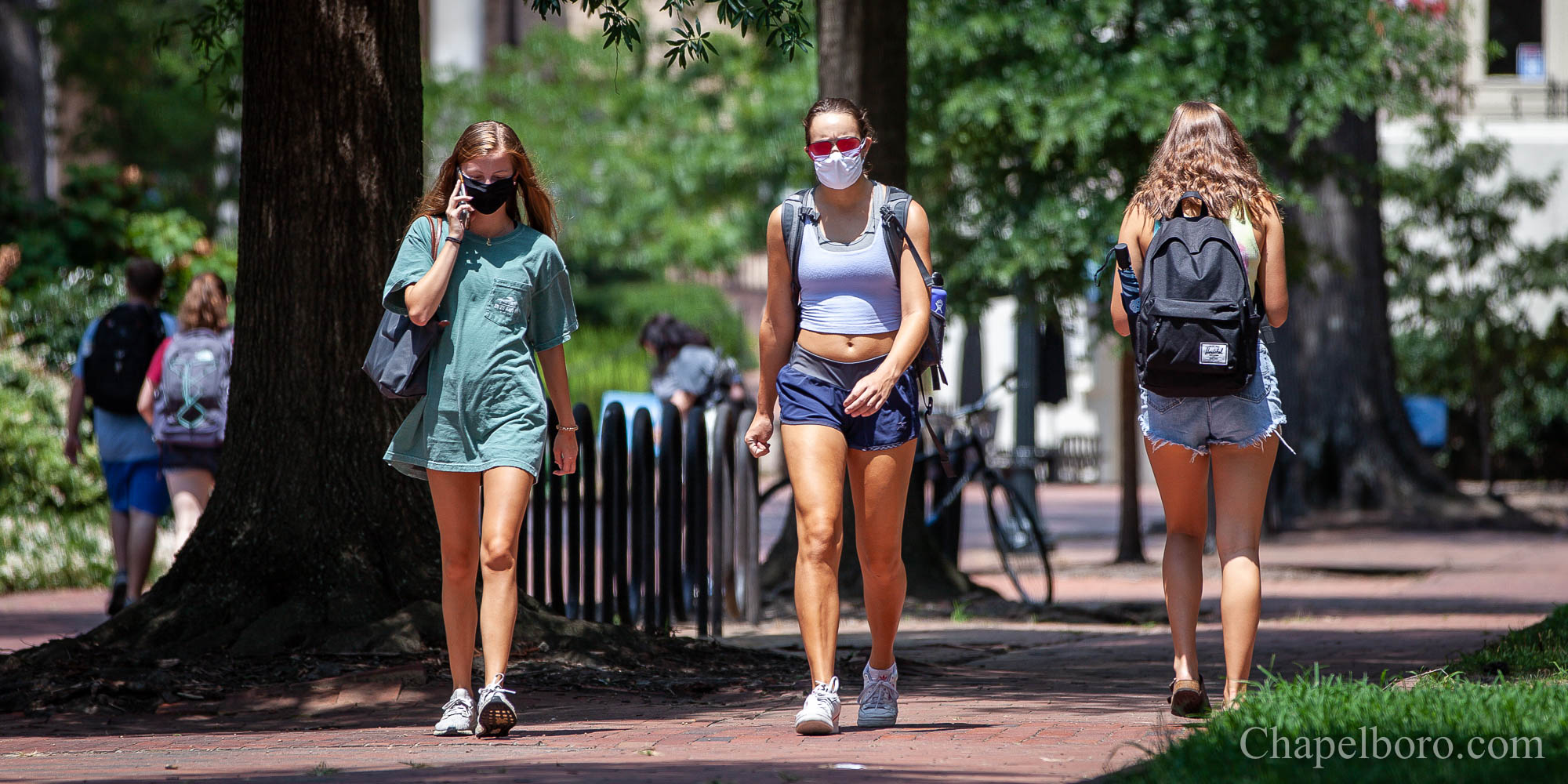Dozens of UNC students and staff members laid on the ground outside the South Building on Wednesday in a “die-in” protest and called for the university to operate online during the coronavirus pandemic.
Last week, Orange County Health Director Quintana Stewart submitted a letter to UNC Chancellor Kevin Guskiewicz and campus leadership recommending that classes be held virtually for at least the first five weeks of the semester. Despite that, UNC continues to welcome students back to campus before classes begin on August 10.
“The Orange County Public Health department has said that this will be dangerous,” said Lindsay Ayling. “They’ve advised UNC against it.”
Ayling said it is only a matter of time before an outbreak of coronavirus occurs on campus when students return. Earlier this summer, the UNC Athletics department experienced its own outbreak of the virus when 37 people tested positive.
“We know that there will be an outbreak on campus,” she said. “Campus workers will get sick and some of them will die. Students, community members, faculty, and staff all will get sick and potentially die.”
One of the speakers at Wednesday’s protest referenced her own experience with coronavirus, saying it took her more than 100 days to recover from the virus and walking up the steps to the South Building still left her breathless.
Dozens of students and faculty members begin the “die-in” protest on #UNC’s campus. pic.twitter.com/UgxCr4kwz2
— WCHL & Chapelboro (@WCHLChapelboro) August 5, 2020
David Brannigan, a groundskeeper on UNC’s campus, also spoke at the protest. He said UNC’s decision to hold in-person classes amid the coronavirus pandemic was a direct reflection upon campus leadership.
“I think the most disappointing thing to me is the absolute abdication of leadership responsibilities by Chancellor Guskiewicz,” Brannigan said. “He is not leading and looking after his university and his people.”
Orange County’s letter to UNC was a key point among many of the speakers at Wednesday’s protest. In addition to requesting that classes be held virtually, the county’s health department recommended restricting on-campus housing to at-risk students with no access to equitable educational resources and those with true housing needs.
“It seems to me that you should be listening to the director of Orange County Health,” Brannigan said. “If you’re not listening to [her], you’re listening to the wrong people.”
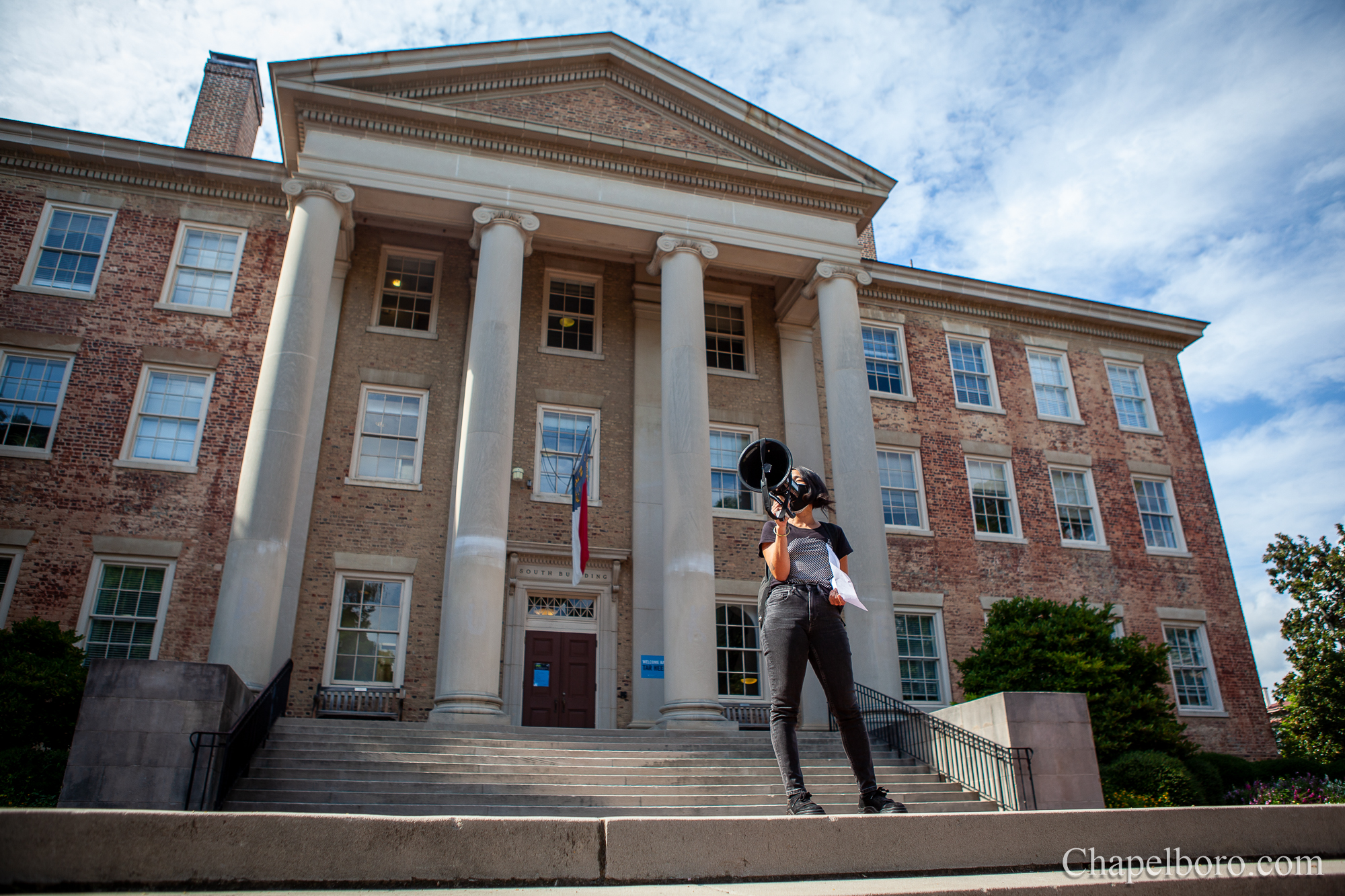
Recently, UNC launched its own COVID-19 dashboard which tracks the number of cases on campus. The university is reporting 175 total cases on campus, 139 of which are from students. Orange County is reporting 1,296 coronavirus cases and 45 deaths from the virus.
Ayling said that, despite precautions taken by UNC to limit class size and traffic on campus, there’s no way to distance thousands of college students from each other.
“The architecture of campus is set up to spread a pandemic,” she said. “There’s simply no way to safely handle that density of students and the administration can pretend that it’ll be students’ fault for not following their guidelines, but the fact is that they’re creating a situation where thousands of students will be in dorms, students will be in dining halls, they’ll be in classes which are also poorly ventilated.
“So even if students follow these guidelines, they and the workers who are taking care of these spaces will also be placed at high risk of contracting coronavirus.”
For more information on UNC’s road map to reopen, visit its Carolina Together website.
Chapelboro.com does not charge subscription fees. You can support local journalism and our mission to serve the community. Contribute today – every single dollar matters.

